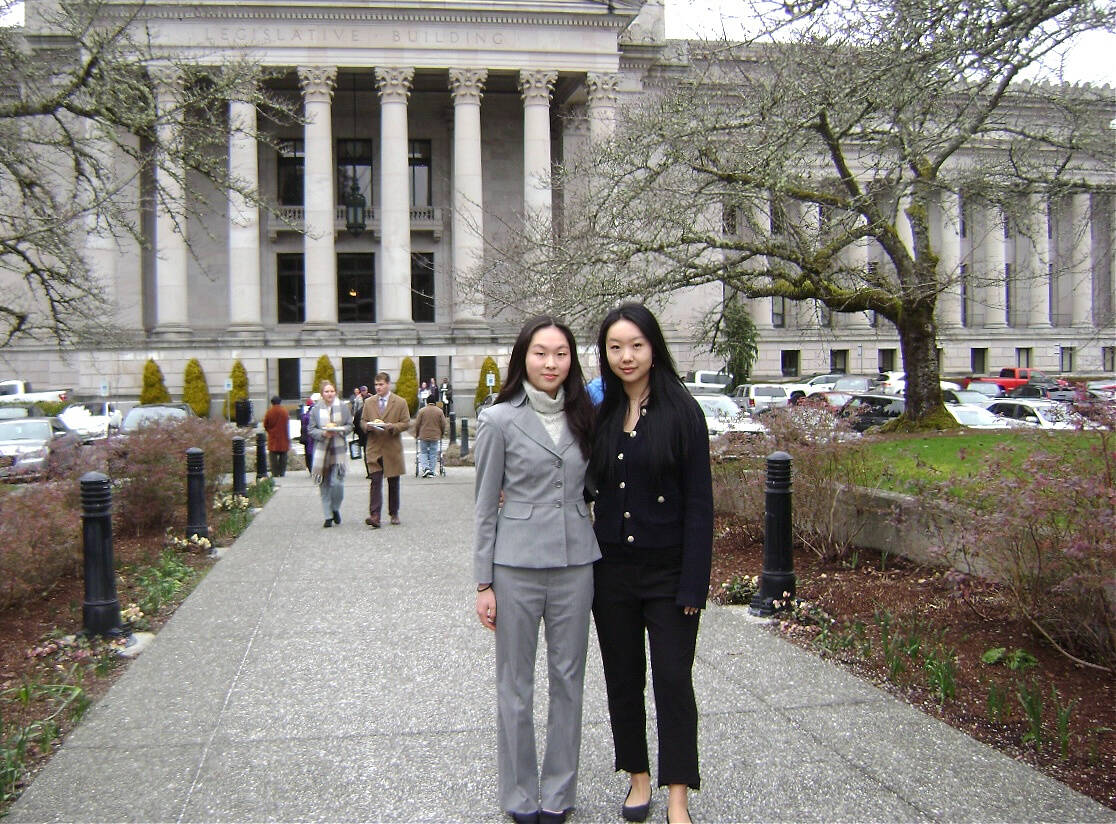Mercer Island student advocate Grace Go’s robust involvement with Make Us Visible Washington led her to Olympia on Feb. 18.
On that day, she took part in a hearing of a critical bill (SB 5574) — sponsored by Sen. T’wina Nobles of the 28th Legislative District — to ensure that Washington K-12 students learn about Asian American and Native Hawaiian/Pacific Islander (AANHPI) history.
The 2024 Mercer Island High School graduate and gap-year student joined other members of the coalition at the hearing in the Senate Early Learning and K-12 Education Committee, which is chaired by Mercer Islander and Sen. Lisa Wellman of the 41st Legislative District.
“In a country so polarized, we need to focus on what unites us: the fact that we are all Americans,” Go said. “There’s a wealth of rich Asian American history in this state that deserves to be shared. SB 5574 is extremely well thought out and isn’t just a band-aid solution for inclusion; it’s a crucial step toward long-term recognition and understanding.”
Make Us Visible Washington State Director Angelie Chong of Bellevue praised Wellman’s support in giving AANHPI Washingtonians a voice and a say in how their shared histories are taught.
“AANHPI history must be integrated alongside the histories of other communities. This is what American history should look like, and there should be nothing about us without us,” Chong said in a press release.
According to Make Us Visible Washington, “This bill serves as a long-term preventive measure against anti-Asian American bullying, hate, and violence that continues to be present in Washington.” Nearly 50 local AANHPI organizations have publicly endorsed a sign-on letter for the bill, which pushes for integrating AANHPI history in state social studies learning standards by September 2028 and requiring AANHPI history instruction in grades K-12 beginning in 2029-2030.
Chong said that since the education committee didn’t meet after the hearing, the bill is unlikely to progress this legislative session. Following the policy cut-off date of Feb. 21, the bill remains alive until 2026 and the coalition hopes to amend it onto another bill that is further along toward possible passage.
Nobles commended the hard-working Make Us Visible Washington members for helping make the bill a reality, she said on her social media feeds.
Angela Bahng, a Mercer Island parent and coalition steering committee member, delved into the importance of the bill: “The current federal stance against inclusive education demands the urgency for SB 5574 to be codified in Washington this year, in order to protect our students and communities who are being targeted with hate crimes and violence on a daily basis. This bill will not add a new curriculum, graduation requirement, or burden to teachers, but allow existing resources to be used to ensure AANHPI representation in U.S. history. Unfortunately, the dedicated civic engagement of over 61 AANHPI community organizations was not fully recognized by our legislators this session and left many of our local students, parents, and elders silenced in Olympia and throughout our state.”
Another Mercer Island resident, Judy Kusakabe, spoke out about the significance of the bill while she Zoomed in at the hearing.
“I have lived with racism and it is hurtful, and I really care about our children,” said Kusakabe, who noted that she was unlawfully imprisoned in American prison camps during World War II. “I believe that it is very important that instruction of the history of the AANHPI be a part of the curriculum. If children are taught more truths, there may be more positive and less negative interactions.”
Also at the hearing, Association of Washington School Principals representative Casey Brown said they fully support the intent of the bill and that AANHPI cultural contributions have been integral in the history of Washington state and the country.
However, he said the association feels that educators won’t have the necessary time and support to adhere to the bill’s requirement. The association recommends that the proposed curriculum be strongly encouraged rather than required.
For more information, visit makeusvisible.org.


